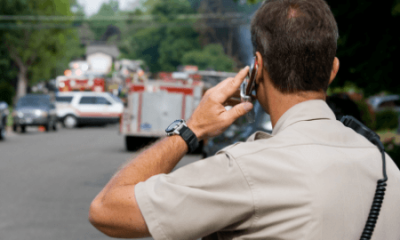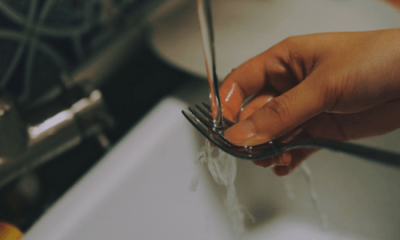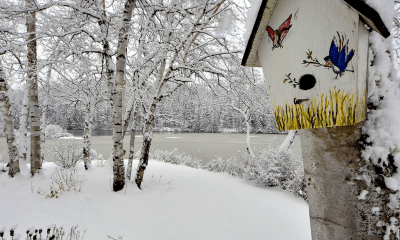How to Prepare Your Home for Seasonal Changes Safely
Clean gutters
Cleaning your gutters free of built-up debris like twigs, sticks, and leaves will allow rain to flow properly through the gutters and away from your home. If rain water is not be able to move through the gutter, then the water can back up in the piping, causing potential flooding hazards in and around your home.
In addition, clogged gutters are a fire hazard. All it takes is a single spark to ignite the debris left in your gutter to start a fire. This spark could come from a variety of sources such as fireworks, a chimney or the embers of an open fire.
Replace batteries in smoke and carbon monoxide detectors
A good rule of thumb is to check your smoke and carbon monoxide detectors every month. In addition, batteries in both kinds of detectors should be changed every six months to ensure that they are in proper operating order. An easy way to remember to do this is the two times a year when the clocks change to and from Daylight Saving Time.
Check trees surrounding your home
Throughout the course of the winter and fall seasons, storms and the heavy weight of snow on trees can cause limbs and branches to become loose, or even break. Be sure to remove all dangling or weak and damaged branches that have the potential to fall.
Check roof for damage
In the height of winter, with snow piled up on your roof, it can be hard to assess any damage that your roof may have sustained due to winter conditions. Take the opportunity in the spring, summer and fall to either go up on your roof, or hire a professional to do so, to make sure there is no new damage from the previous season's weather, such as hail or ice damage, leaks or cracks. Cracks in your roof or chipped shingles can lead to leaks which could result in water damage or harmful mold growth inside your home.
Visually check your siding for damage
Any part of home that is open to the elements is a potential place for those elements to get into house. Check the exterior of your home for any chipped paint, signs of rot, loose materials, and missing caulking. Make sure all pieces of siding are still intact and functional, and fix or replace any that are damaged. Any loose material hanging off of your property should be removed as well. Check the caulking around windows and doors to make sure they are still sealed properly and that any caulk hasn't peeled away during the winter months.
 Check foundation of home for cracks to fill
Check foundation of home for cracks to fill
Cracks in your foundation due to settling or harsh weather conditions can be a precursor for potential flooding and/or structural issues in the future. Examine the foundation of your home and fill and repair any cracks that have appeared appropriately.
Check basement/garage and empty out old cans of paint, oil, thinner, etc.
It is easy to stockpile cans of old paint, oil, paint thinner and gasoline in the basement, garage or storage shed and forget that they are there. However, as the season changes it is of utmost importance to clear these items out as they are potential fire hazards.
Have chimney professionally cleaned
Having your chimney professionally cleaned will reduce your chances for a fire. Many times, birds will begin a nest there, or twigs and leaves can fall in, causing an already dangerous place to become that much more hazardous.
Natural disasters such as a fire are an unexpected force of nature. However, I have seen numerous chimney fire claims due to latent winter damage that could have been prevented. The worst thing a homeowner can do is procrastinate on correcting the hazards in their home. In this case, you do not want the cause of a house fire be something that was avoidable.
Greg Raab
Vice President - Adjusters International
Inspect outdoor play equipment to make sure it is safe for using for children
In winter months, heavy accumulated snow can sit on outdoor furniture and play equipment causing screws and nails to rust, weakening wooden structures and making it unsafe to play on. Before any of this equipment is used, make sure that everything is still functional by applying pressure in certain areas beforehand, and fixing any weak areas.
Go over your 'disaster plan'
Your household should have a comprehensive and up-to-date disaster plan. This plan should include emergency and first-aid kits, food and water kits, meeting locations, and evacuation plans. Recap your year, have you moved to a new location? Are there additions to your family? Have you renovated or added onto your home? All of these can lead to changes in your disaster plan and need to be accounted for. Get your family together and go over your previous disaster plan while updating it with any new changes or ideas.
As public adjusters, we have seen many disasters take place in homes or businesses that could have been prevented. It is in the policyholder's best interest to protect themselves and their family before disaster strikes.
For additional information, visit:












